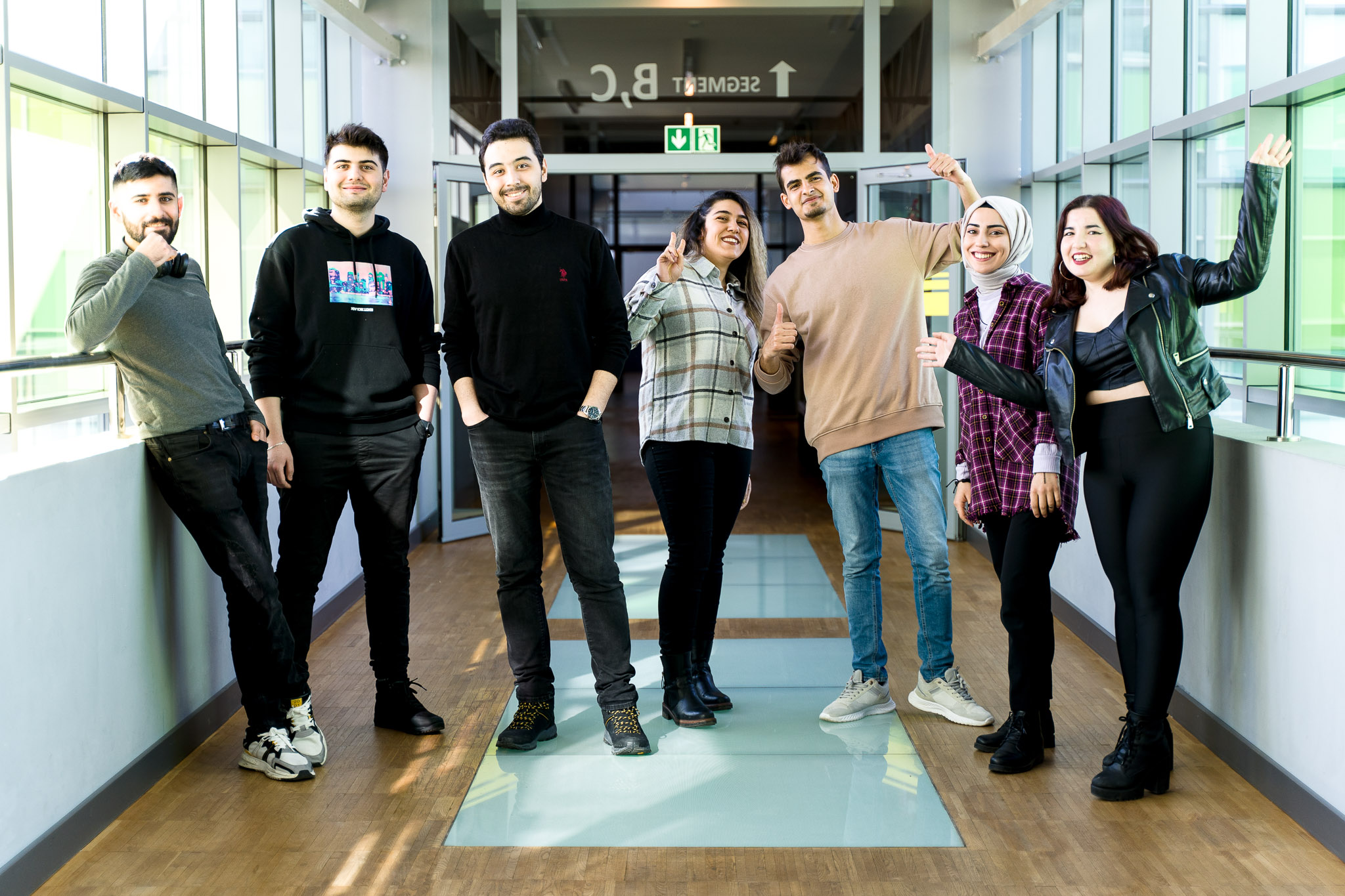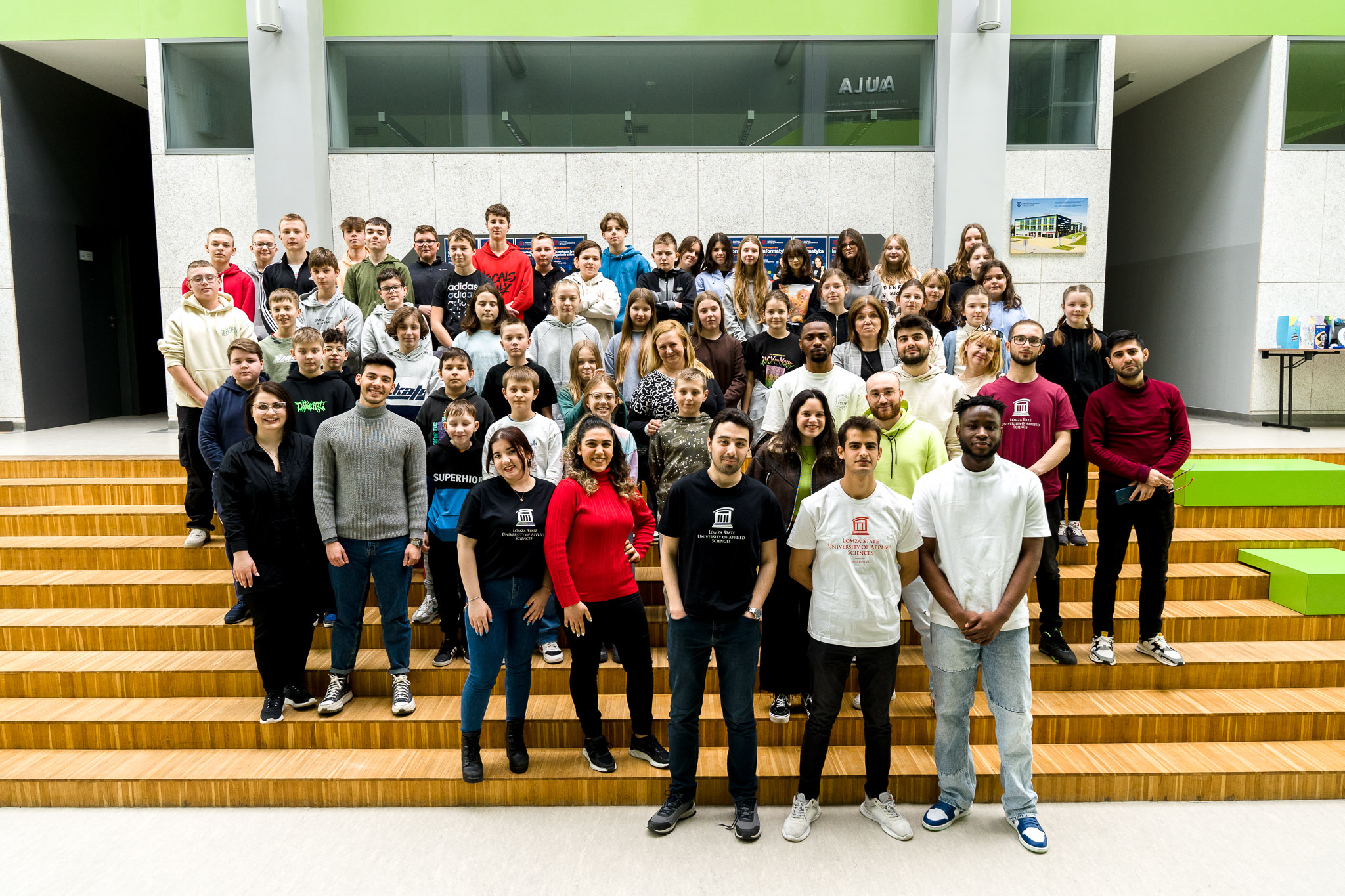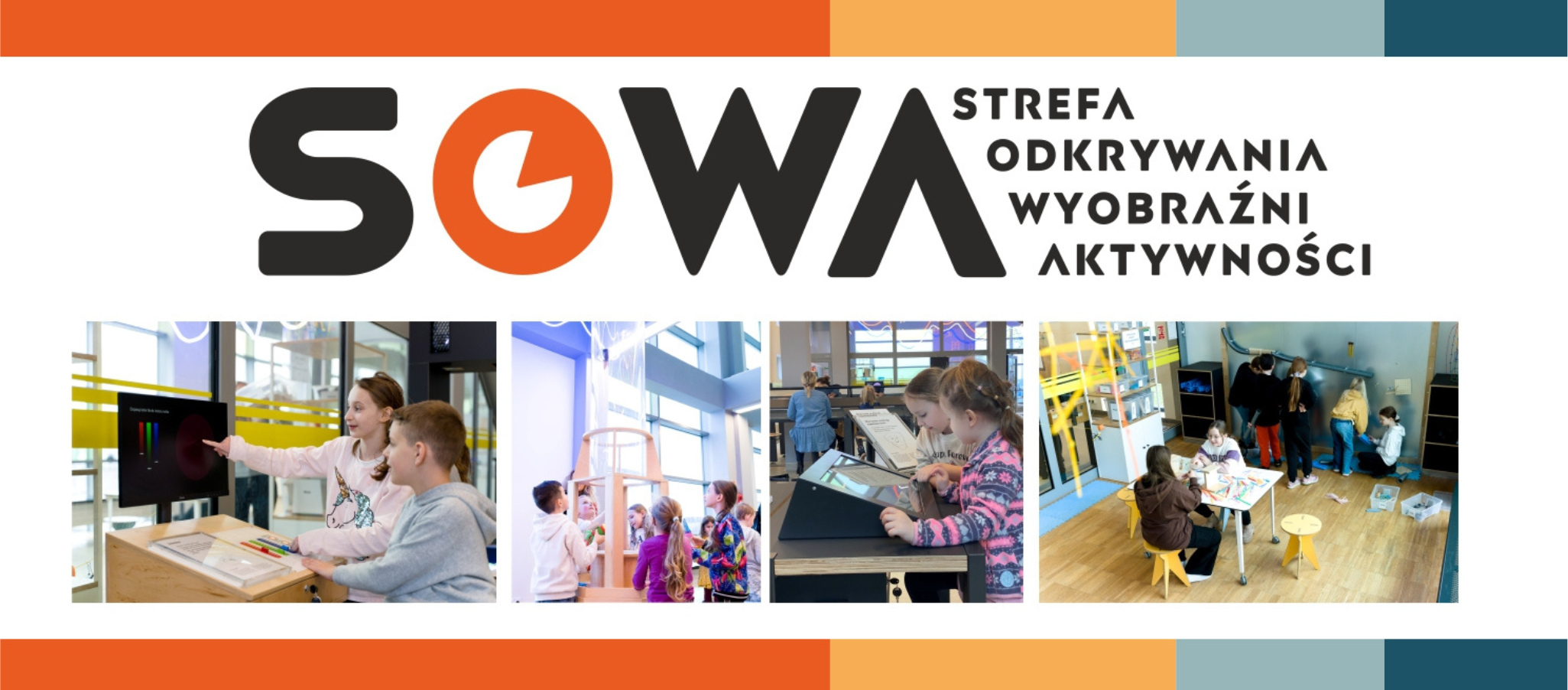Incoming students
Nomination Deadlines:
Winter Semester: May 30th
Summer Semester: November 30th
RULES REGULATING THE MOBILITY OF VISITING STUDENTS
- Students willing to come to the University of Lomza under the Erasmus + program send the following documents to the International Cooperation Department: Student's Application Form with a photo, Learning Agreement / Training Agreement, Transcript of Records and Accommodation Form. Application documents are available on the website.
- On the basis of the received documents, the Coordinator of the given Department accepts candidates - foreigners to undergo part of the studies / practice at the University of Lomza and transfers the signed documents to the University Coordinator.
- Invitation Letter and Acceptance Letter are issued and signed by the University Coordinator.
- Current didactic offers in English are available on the Faculty's websites. An updated teaching offer is provided by the Area Coordinator to the International Relations Department by May 30th of each calendar year.
- Changes to the selected education programme may be made within one month of the beginning of the course.
- Faculty Coordinators are obliged to deliver to the International Cooperation Department within two weeks from the beginning of the didactic classes: class schedules, lists of subjects and lists of academic teachers assigned to conduct classes with foreign students in a given semester.
- All administrative activities related to the admission of a student from abroad are conducted
at the International Cooperation Department. - Foreign students have the opportunity to apply for a place at the Rubikon Student's House. Students accommodated at the Rubikon Student's House are subject to the rules contained in the "Regulations of the Rubicon Student's House".
- International students, immediately upon arrival, are obliged to report to the International Cooperation Department to complete the basic documentation.
- In accordance with the Regulations of Studies at the University of Lomza , foreign students are subject to the registration procedure in force at our university, i.e. they are recorded in student albums
and registers. They receive a University of Lomza student card and a Course Credit Card, which is the basis for participation in selected classes and for applying for course credits in a given semester. - Foreign students are required to have a valid visa or temporary residence permit and a current insurance policy against the costs of treatment and the consequences of accidents.
- At the end of the mobility period, foreign students receive a list of credits - Transcript of Records issued by the International Cooperation Department on the basis of received Course Credit Cards signed by the Faculty Dean. The University Coordinator issues a Confirmation Letter confirming the period of studying / completion of an apprenticeship at University of Lomza .
- Documents related to the admission and stay of foreign students during their studies are stored at the International Cooperation Department, in students' personal files.
- Organizational units falling within the scope of the didactic division, i.e. dean's offices / secretariats, are obliged to provide all organizational assistance in students' arrivals and departures.
Support for Students with Disabilities and Fewer Opportunities
The University of Lomza is committed to ensuring full accessibility and equal opportunities for all students, including those with disabilities, chronic illnesses, or special needs. Incoming Erasmus+ students can benefit from a wide range of services and support mechanisms:
Dedicated Coordinators
- Coordinator for Students with Disabilities – represents the interests of students with disabilities and chronic illnesses, provides individual assistance, and coordinates support services.
- Accessibility Coordinator – supports all students with special needs in accessing University services and ensures the removal of organizational and technical barriers.
- Architectural Accessibility Coordinator – monitors and improves the accessibility of University buildings and facilities.
- Digital Accessibility Coordinator – ensures that online platforms, websites, and digital documents are fully accessible.
Available Support Services
- Psychological support – free access to an online psychologist and the Academic Centre for Personal and Social Development (FOCUS).
- Free equipment rental – students can borrow assistive devices such as laptops with accessibility functions, tablets, voice recorders, multifunctional devices, screen readers, portable scanners, keyboards for visually impaired students, and magnifying devices.
- Resting room – a specially designated space equipped with a bed and bathroom for students who need rest during the day.
- Accessibility project “Accessible and Barrier-Free University” – comprehensive programme co-financed by the European Union, improving architectural, digital, and educational accessibility at the University of Lomza.
Individual Adjustments
The University provides flexible solutions such as online or hybrid learning arrangements, adapted examinations, assistive technologies, and additional consultations. Regulations and internal procedures guarantee that students with disabilities can fully participate in education and mobility projects.
Contact
Incoming Erasmus+ students are encouraged to contact the International Relations Office (
Academic Coordinators
Faculty of Computer Science and Technology
Faculty Erasmus+ Coordinator
Grzegorz Rubin, EngD, e-mail:
Departmental Erasmus+ Coordinators:
Computer Science
Andrzej Sawicki, EngD, e-mail:
Automation and Robotics
Tomasz Kuźmierowski, EngD, e-mail:
Food Technology
Agnieszka Obiedzińska, EngD, e-mail:
Faculty of Health Sciences
Faculty Erasmus+ Coordinator
Marta Rożniata, PhD, e-mail:
Departmental Erasmus+ Coordinators:
Nursing
Martyna Turowska, MA, e-mail:
Cosmetology
Joanna Masłowska, MA, e-mail:
Dietetics
Marta Gamdzyk – Żebrowska, PhD, e-mail:
Physiotherapy
Wioletta Pogroszewska, MA, e-mail:
Physical Education
Paweł Arnista, MA, email:
Faculty of Social Sciences and Humanities
Faculty Erasmus+ Coordinator
Joanna Włostowska, MA, email:
Departmental Erasmus+ Coordinators:
Administration
Magdalena Kun-Buczko, PhD, e-mail:
Management
Magdalena Forfa, PhD, email:
Social Work
Jarosław Poteraj, PhD, e-mail:
Philology
Radosław Brzeziński, MA, e-mail:
Law
Anna Szafranek, PhD, e-mail:
Pedagogy
Jolanta Boryszewska, PhD, e-mail:
Academic Calendar
| Winter Semester | 01 October 2025 – 28 February 2026 | |||||
| Study period | 1 | Oct | 2025 | 28 | Jan | 2026 |
| Winter Holiday | 22 | Dec | 2025 | 7 | Jan | 2026 |
| Winter examination session | 2 | Feb | 2026 | 11 | Feb | 2026 |
| Winter break | 12 | Feb | 2025 | 28 | Feb | 2025 |
| Summer Semester | 01 March 2026 – 30 June 2026 | |||||
| Study period | 1 | Mar | 2026 | 30 | Jun | 2026 |
| Summer Holiday (Easter) | 2 | Apr | 2026 | 7 | Apr | 2026 |
| Summer examination session | 22 | Jun | 2026 | 4 | Jul | 2026 |
General information
University of Lomza was first established on June 22nd, 2004 by an act of the Council of Ministers of the Republic of Poland. At first, the main motto of our University was: “Creating small and medium-sized enterprises,” yet it was later altered due to new directions of development and newly formed fields of study. In 2012, the Academic Senate reformed the motto to state "We educate practitioners". After ten years of hard work put into achieving excellence in this field and having prepared hundreds of students to the best of their abilities, our University has began its journey of taking anothr great step in its academic journey.
That is why after thoughtful consideration, the Academic Senate decided to make this grand step official by refolmulating the motto yet again, to focus on the following direction:
“We educate professionals”
In the history of Łomża, sixteen years is like a blink of an eye, but in the history of the University it is a whole era, from very difficult organizational beginnings to the present time, when our University stands out from other state schools, thanks to its extraordinary dynamics, great equipment, excellent teaching staff and scientific development. However, the greatest success of the University are individual achievements of our graduates who undertake further studies and wonderfully manage in life as well as at work.
Our University is recognizable in the country and in the region as the centre of education of specialists– practitioners. University of Lomza offers first and second cycle degrees, full-time and part-time. Every year, we develop in our students the knowledge and skills that will enable them to work in their chosen professions, as well as open the door to the world in the form of Erasmus+ (study and practice). Our University became an extremely flexible and efficient institution that is a part of the tradition of Łomża and relies on the cooperation of the entire region. It is the pride of all inhabitants of Łomża, permanently inscribed in the history of the city and its architectural landscape.
Page 6 of 26







